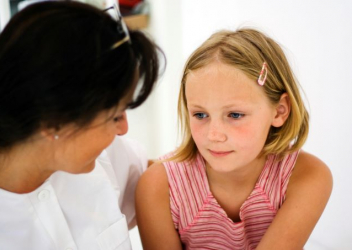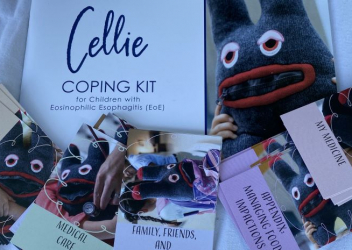Research In Action
Research In Action
Breadcrumb

Pediatric injury, illness, and medical experiences can be stressful, frightening, or painful and impact millions of children each year. For children who have chronic conditions or need repeated medical interventions, the stress can be compounded. Decades of research, including studies conducted by CIRP investigators, have shown that while many pediatric patients (and their family members) have some acute distress that resolves with time and support, about one in six children and parents develop persistent reactions, including traumatic stress symptoms, that impact their day-to-day functioning.
For two decades, the Center for Pediatric Traumatic Stress (CPTS) has served as a national resource helping healthcare providers and systems to address health-related trauma in the lives of pediatric patients and their families. CPTS is the go-to resource for evidence-based information and tools to help healthcare teams implement trauma-informed pediatric care. Our HealthCareToolbox.org website provides a wealth of resources, information, and downloadable tools for a wide range of health professionals, as well as ill and injured children and their families.
Founded at CHOP in 2002, the Center is now a collaborative effort across three institutions – CHOP, Nemours Children's Health, and the University of Kentucky. CPTS is also a proud partner in the National Child Traumatic Stress Network (NCTSN), a unique national collaborative effort to improve quality and access to care for trauma-exposed children, families, and communities across the United States.
CPTS is celebrating this 20-year milestone with a three-part webinar series, soon to be available on HealthCareToolbox.org, and a recently released special 20th anniversary report.
Reflecting on the past 20 years, we see several key themes that support our work as a Center:
- Collaborating with patients and families: Our National Family Advisory Committee includes those with lived experience of pediatric medical traumatic stress: parents and caregivers, as well as young adults who were patients or siblings of patients. CPTS works closely with family-led advocacy organizations that are working tirelessly to improve care and meet the needs of the patients and families they serve.
- Engaging frontline providers and partnering with professional organizations: CPTS resources address all members of the healthcare team, not only clinicians but all who come into contact with patients and families. Our National Nursing Advisory Committee helps ensure that these resources speak effectively to the needs of frontline providers. In addition to helping healthcare teams provide evidence-based, trauma-informed care for patients, CPTS resources help healthcare organizations support provider and staff wellness and address the risk of secondary traumatic stress.
- Attending to equity and disparities: We recognize the role of systematic racism and other inequities as barriers to high quality trauma-informed pediatric healthcare and incorporated this awareness explicitly into our training and resources.
What’s next for CPTS? We are building on our resources and experience by developing new initiatives to expand our reach and impact. Look to HealthCareToolbox.org over the next few months to learn about our growing partnerships with the pediatric rare disease community and with medical interpreters, our collaborations with nursing faculty to promote teaching of trauma-informed care in schools of nursing, and for new online tools that will help us more efficiently teach trauma-informed interventions and support healthcare teams in improving and evaluating their trauma-informed practices.




